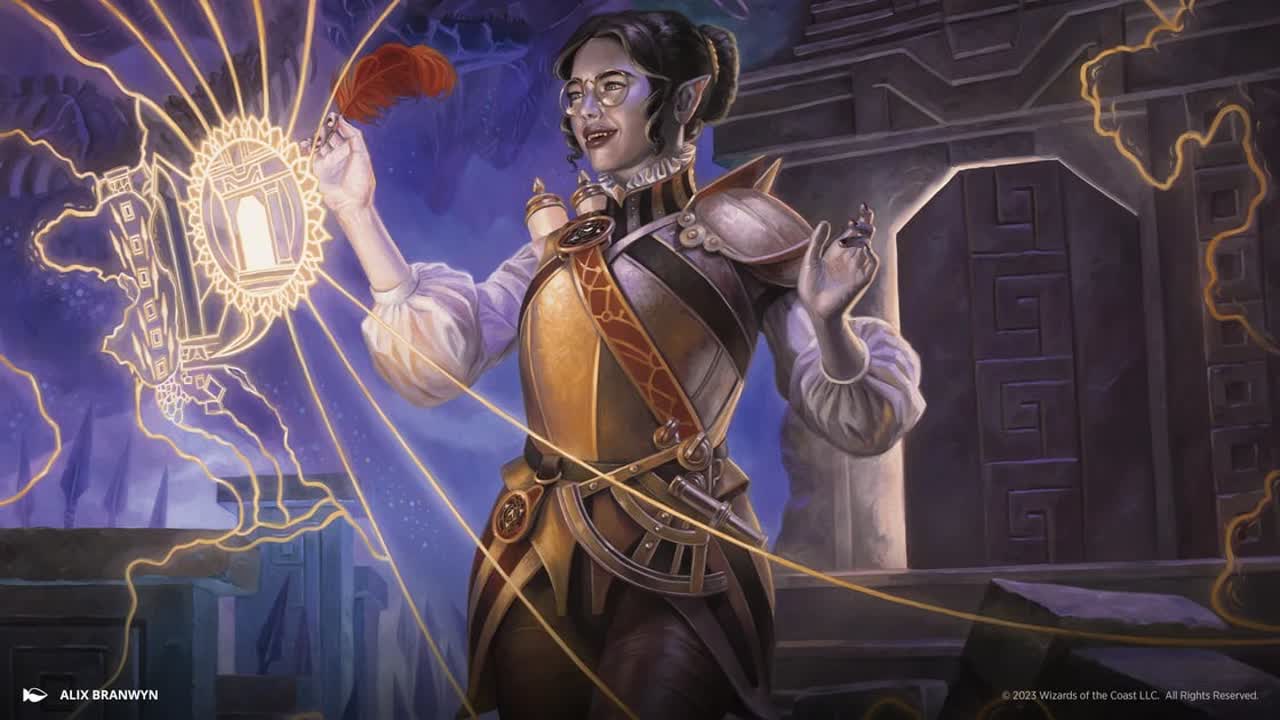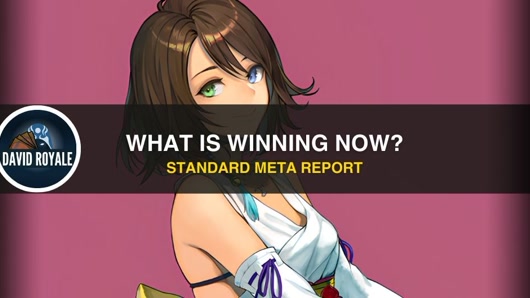On June 15-16 MTG Arena will host an Explorer Qualifier Weekend and Amalia Combo is a deck that needs some attention as it is among the best decks available in the format.
Explorer (and Pioneer) format offers many combo available but over the past months Amalia Combo has been the most popular among them. Right now the deck is the fourth most played in Pioneer with a meta share of around 8% and I would expect a similar share in Explorer as well. Generally when it comes to combo decks you would expect them to take many turns to assemble the various pieces of the combo. With amalia this might not be the case since the deck can potentially combo on turn 3 putting our opponents in an uncomfortable position from the beginning of the game.
What’s the deck plan?
As you can imagine the deck revoles around Amalia Benavides Aguirre: we need three cards to start the combo and two of them need to be Amalia Benavides Aguirre and Wildgrowth Walker while the third piece of the combo is really flexible. Deep-Cavern Bat and Extraction Specialist can start the combo by dealing damages thanks to their lifelink ability but this is not the most common way to start the combo. Considering the number of copies of the cards in the deck it's most likely to combo off with either Lunarch Veteran or Prosperous Innkeeper. Last but not least we also have Cenote Scout and Sentinel of the Nameless City: the first one with his Explore effect and the second one with his Map tokens.
Let's go into more detail and see all the ways to combo off our opponents:
- Lunarch Veteran, Amalia Benavides Aguirre and Wildgrowth Walker;
- Prosperous Innkeeper, Amalia Benavides Aguirre and Wildgrowth Walker;
- Amalia Benavides Aguirre, Wildgrowth Walker and Cenote Scout;
- Amalia Benavides Aguirre, Wildgrowth Walker and Deep-Cavern Bat (that triggers its lifelink ability);
- Amalia Benavides Aguirre, Wildgrowth Walker and Extraction Specialist (that triggers his lifelink ability);
- Amalia Benavides Aguirre, Wildgrowth Walker and Sentinel of the Nameless City plus one mana to crack the Map token;
- Lunarch Veteran, Amalia Benavides Aguirre and Extraction Specialist that let you return Wildgrowth Walker from your graveyard;
- Lunarch Veteran, Wildgrowth Walker and Extraction Specialist that let you return Amalia Benavides Aguirre from your graveyard;
- Prosperous Innkeeper, Amalia Benavides Aguirre and Extraction Specialist that let you return Wildgrowth Walker from your graveyard;
- Prosperous Innkeeper, Wildgrowth Walker and Extraction Specialist that let you return Amalia Benavides Aguirre from your graveyard;
- Amalia Benavides Aguirre, Wildgrowth Walker and Extraction Specialist that let you return Cenote Scout from your graveyard.
The final result of the combo will be an empty board for our opponent and a 20/20 or 21/21 Amalia Benavides Aguirre for us. On top of that we gain a ton of life that can be used to kill our opponent in two different ways.
Dina, Soul Steeper and Aetherflux Reservoir arethe two other ways to kill our opponents without having to attack with Amalia Benavides Aguirre. In order to kill our opponent with Dina, Soul Steeper we need to have her into the battlefield while we start the combo. It's not a guaranteed otk since it can potentially deal only 18 damages but the chances of hitting a non-land card eighteen times in a row are quite low. Practically speaking it's almost guaranteed to deal more than eighteen damages and consequently to kill our opponent.
On the other hand, with Aetherflux Reservoir we can directly kill our opponent by dealing fifty damages to them thanks to the huge amount of life gained with the combo. In this case the least amount of life available would be fifty-five as we get at least eighteen triggers plus at least one life that we already have. Basically it will always be possible, after the combo, to use Aetherflux Reservoir and that's a good reason to leave it on top of the deck as we explore. Whenever it is left on top of the deck we just have to draw it, cast it and activate it to end the game if attacking with Amalia Benavides Aguirre was not enough or was not possible.
As shown from the different ways of combo it's possible to kill our opponent by turn three and from my experience I can tell that it's easier than you would expect. It's not going to happen every game but the fact that it can happen is enough to put our opponents in a tough spot where they are not able to use their mana efficiently or to develop their (slower) plan in the most consistent way.
Instant and Sorcery spells
The packet of Instant and Sorcery spells is really important for the deck as it helps to find the pieces of the combo.
Return to the Ranks makes us resilient to mass removal and gives us a second chance to combo off whenever the first combo was not enough or in the cases where the combo was stopped by our opponent.
Chord of Calling is really handy as it can be a free tutor due to his convoke ability. Most of the times it won't be a free spell but we are happy to cast it anyway as it can let us combo off at instant speed in order to get a chance to play around opponent's removal or counterspells.
We can compare Collected Company to Chord of Calling as it is an instant speed card but, on the other hand, it's not a guaranteed hit. The randomness we have to face when playing Collected Company is the price to pay to be able to find not one but two pieces of the combo.
These three cards are all extremely important for the deck and although the number of copies of each card can be subject to change I would never go below the two copies of each card.
Good and Bad Matchups
Rakdos Vampires is commonly considered the best matchup for the deck while Azorius Control is the worst one for sure. Personally I would consider Izzet Phoenix a good matchup as well.
Conclusions
The deck is in the pool of decks I'm considering to play in the Explorer Weekend Qualifier for many reasons. So far I haven't played a single match against Azorius Control in Explorer Events or Ladder play on Arena while Rakdos Vampires is for sure the deck I played against the most. Beyond that the deck is really strong and can end matches pretty fast whenever your opponent fails to find ways to answer the combo.
If you are still unsure on what to play in the Qualifier or if you just enjoy Explorer and combo decks I would highly recommend you to give it a try.










